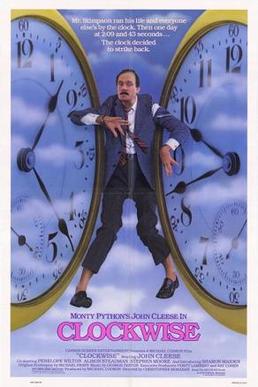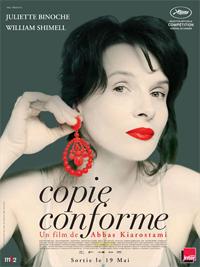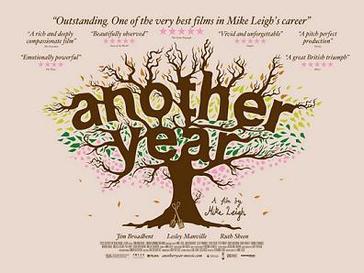Page contents: Osaka elegy – (1936) / Never let me go – (2010) / Monsters – (2010) / The Lincoln lawyer – (2011 ) / Tokyo-ga – (1985) – Wenders / The Red and the White– (1968) / Source Code – (2011) / Clockwise – (1986 ) / Bliss – (1985 ) / My Father's guests – (2010) / TiMER – (2009) / Certified copy – (2010) / Bridesmaids – (2011) / Another year– (2010)
Osaka elegy (1936) Mizoguchi
The tears of women
Ayako (Isuzu Yamada) is the perfect daughter. She puts her filial duties before her own happiness; she takes (from her shiftless father and brother) the sole responsibility of ensuring their family's prosperity and status. Obviously this could be taken how supremely under valued women are/were in general/ in prewar Japan.
Although the film concentrates on her tragic fall from grace; one should watch Mr. Asai, the president of the pharmaceutical company, as the first responder to Ayako's plight, his role functions as a comic counterpoint to hers.
Mr Asai owes his station in life to his wife, he married into her wealth, and for that was given the largely ceremonial title of president. But around the house, it's clear who wears the pants, and he in turn, takes out his feelings of inadequacy by belittling and bossing around the servants. The film begins with him on the front lawn, closing his eyes and praying: "I hope I win the lottery!" After his wife saunters in one night brazenly in the wee hours of morning. At breakfast, He whines he should get a mistress, she scoffs right in his face: Go ahead!
There's a beautifully mined hypocrisy in the scenes when Mr Asai and Ayako are caught together; yet equal and opposite consequences based on their sex. As a woman, she's invisible when it comes to help and understanding; but obviously the guilty one when it comes to footing the bill and paying the price.
There's a subtle arc for Ayako, she starts off as mild mannered receptionist and slowly navigates these murky waters to become fiercely indifferent to her life. At the close of the film, I didn't know whether to be afraid or happy for her.

Osaka elegy (1936) Mizoguchi
The tears of women
Ayako (Isuzu Yamada) is the perfect daughter. She puts her filial duties before her own happiness; she takes (from her shiftless father and brother) the sole responsibility of ensuring their family's prosperity and status. Obviously this could be taken how supremely under valued women are/were in general/ in prewar Japan.
Although the film concentrates on her tragic fall from grace; one should watch Mr. Asai, the president of the pharmaceutical company, as the first responder to Ayako's plight, his role functions as a comic counterpoint to hers.
Mr Asai owes his station in life to his wife, he married into her wealth, and for that was given the largely ceremonial title of president. But around the house, it's clear who wears the pants, and he in turn, takes out his feelings of inadequacy by belittling and bossing around the servants. The film begins with him on the front lawn, closing his eyes and praying: "I hope I win the lottery!" After his wife saunters in one night brazenly in the wee hours of morning. At breakfast, He whines he should get a mistress, she scoffs right in his face: Go ahead!
There's a beautifully mined hypocrisy in the scenes when Mr Asai and Ayako are caught together; yet equal and opposite consequences based on their sex. As a woman, she's invisible when it comes to help and understanding; but obviously the guilty one when it comes to footing the bill and paying the price.
There's a subtle arc for Ayako, she starts off as mild mannered receptionist and slowly navigates these murky waters to become fiercely indifferent to her life. At the close of the film, I didn't know whether to be afraid or happy for her.

Last edited by thracian dawg; 10-18-18 at 02:23 PM.



 very good
very good 

 this movie
this movie  some friends of mine invested in it and made a matzoh from it
some friends of mine invested in it and made a matzoh from it 

